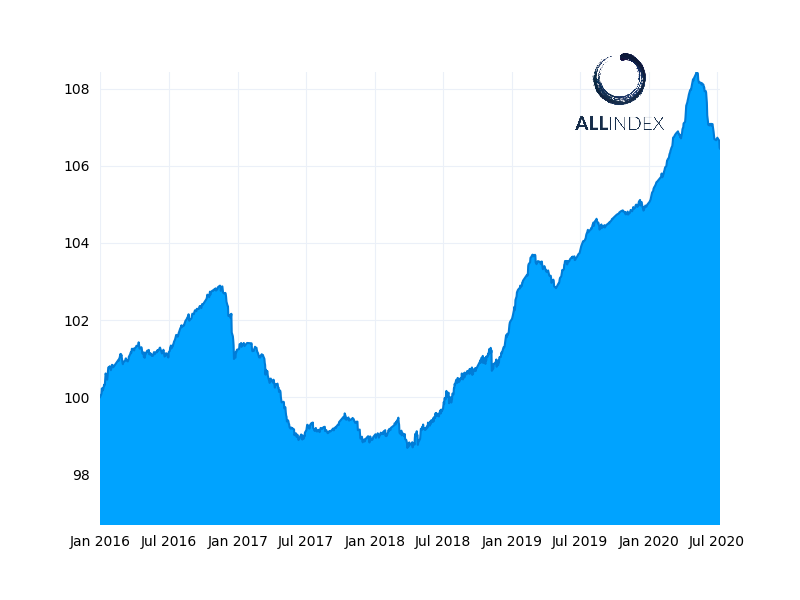(ATF) The Chinese bond market posted losses Thursday with ATF indices slipping and only the ATF ALLINDEX Local Governments sub-gauge rising, by 0.01%. The ATF China Bond 50, the flagship bonds index, and the ATF ALLINDEX Financial retreated 0.02%, while the ATF ALLINDEX Corporates and Enterprise lost 0.04%.
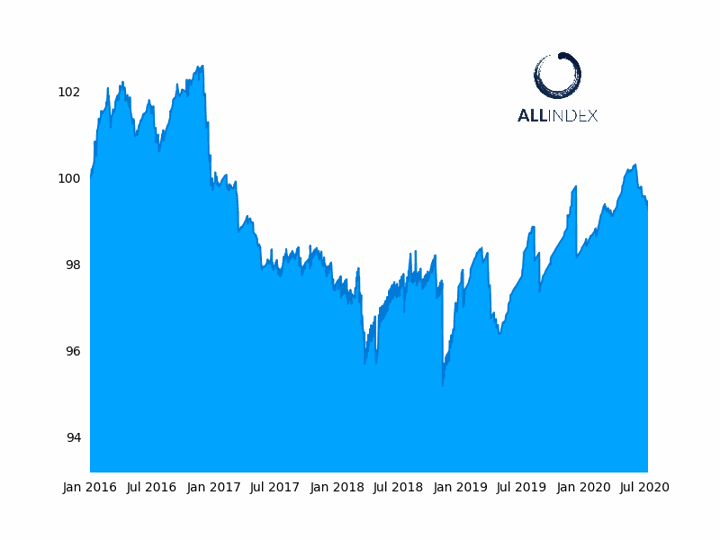
The ALLINDEX Corporates Index lost 0.04%
Meanwhile, the yield on China’s 10-year bond continued its ascent, reaching 3.11%, according to Trading Economics, bringing the spread over its US counterpart to 249 basis points. This stood at 241 basis points on Tuesday, which was at the time its widest on record.
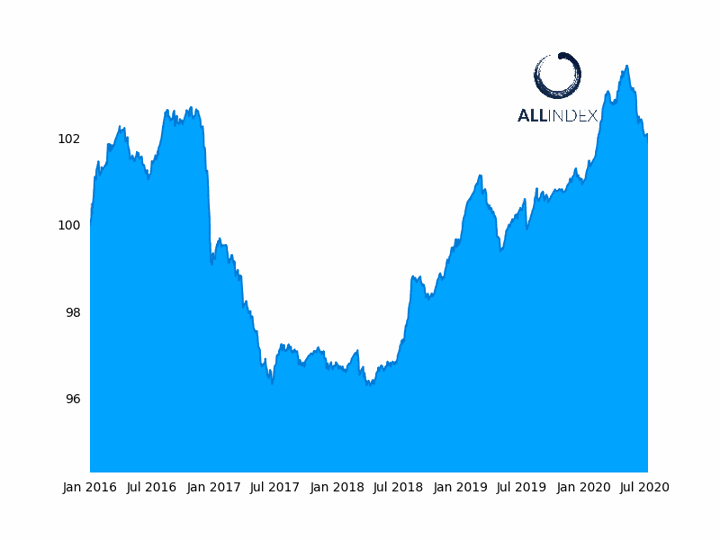
The ALLINDEX Enterprise Index shed 0.04%
Within the China Bond 50, the biggest losses were seen in the bonds of energy companies and Chinese banks and Chinese government bonds, among them: Zhejiang Provincial Energy Group (-0.68), Bank of China (0.88%), Bank of Beijing (-0.62%), the People’s Government of Ningbo (-0.86%) and China Development Bank (-0.51%).
Meanwhile, gains were seen in the bonds of Central Huijin Investment (0.05%), while Bank of Communications (0.08%) and China Merchants Bank (0.13%) reversed Wednesday’s losses.
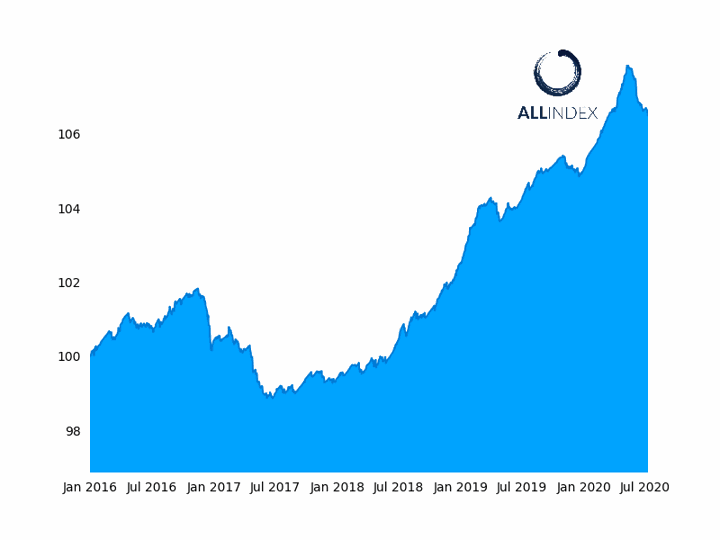
The ALLINDEX Financials Index retreated 0.02%
In the ATF ALLINDEX Enterprise, drops were seen in the bonds of Shenzhen Metro (-0.57%), Hefei Construction (-0.29%), Shaanxi Coal and Chemical (-0.81%), and Shenzhen Energy (-0.64%), while Qingdao City Construction (-0.42%) and Nanjing State-Owned Assets (-0.37%) extended Wednesday’s losses.
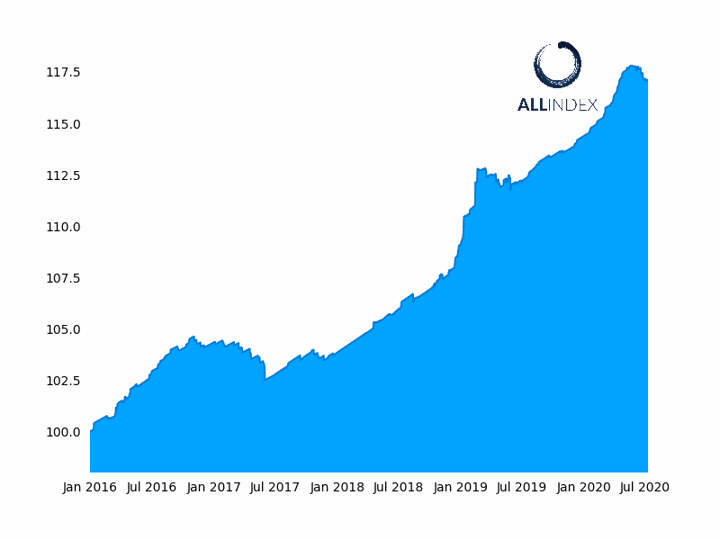
The ALLINDEX Local Government Index gained 0.01%
The bonds of Guotai Junan Securities, GMAC-SAIC Automotive and Bank of Beijing recorded the biggest moves within the ATF ALLINDEX Financial, retreating 0.51%, 0.25% and 0.62% respectively.
Within the ATF ALLINDEX Corporates, retreats in the bonds of Suqian City Construction (-0.48%), Jianxi Provincial Water Conservancy (-0.54%), Hebei Iron and Steel (-1.32%), and Henan Province Tolling Highways (-0.84%) were the most significant moves.
A bull market in stocks coupled with concerns about adequate liquidity provision are driving an increase in borrowing costs, as China seeks to complete 1 trillion yuan ($140bn) of government borrowing in July. The People’s Bank of China (PBoC) opted not to conduct reverse repo operations on Thursday for the 9th consecutive day, compounding investor worries.
Net Chinese government bonds issuance in the first week of July hit 375 billion yuan ($54bn), versus 410bn yuan for the whole of June, according to a research note from Morgan Stanley.
Such large-scale borrowing is leading to fears that private sector credit will be crowded out. In such an event, the PBoC would have the option of conducting more MLF injections and/or reserve requirement ratio cuts to accommodate bond supply, according to Morgan Stanley. This would allow it to keep credit growth at 12.7-13% year-on-year in the second half of 2020, in its effort to support the economy.




